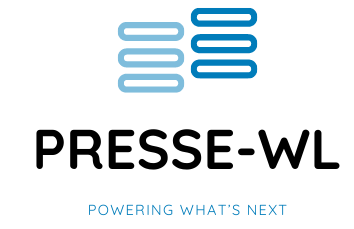
The modern job market is fast-paced and competitive. Companies must ensure that they hire the best candidates, as hiring mistakes can be costly. One way to get a better understanding of a potential employee’s background is with free background checks. This type of screening helps employers verify the accuracy of information provided by applicants and ensures they are making an informed decision when selecting new hires.

Background checks provide employers with valuable insights into the character, qualifications, and past behavior of job applicants. They help protect companies from legal liability associated with negligent hiring practices or workplace violence while also ensuring that only qualified individuals are hired. The thoroughness and reliability of traditional methods such as public records searches vary greatly due to their manual nature, which is why many organizations utilize free background check services instead.
What Can You Find in a Background Check?
A background check typically includes criminal history information, education verification, employment history verifications, and drug testing results (if applicable). Additional services may include reference checks or credit reports depending on the employer’s needs. By conducting these types of screenings prior to hiring employees, employers can gain peace of mind knowing they have taken all necessary steps to ensure only qualified personnel enter their workforce.
Why Use Free Background Checks?
Using free background checks offers several advantages over traditional methods like credit reports or criminal record searches:
- Cost efficiency
Most services offer plans without any upfront costs or hidden fees; this makes it easier for businesses to stay within budget while still obtaining accurate information about potential hires.
- Time savings
Electronic databases make it possible for results to be returned quickly; some even allow employers access to real-time updates so they can make decisions more quickly than ever before.
- Accuracy
Automated systems minimize human error and increase accuracy by ensuring data is up-to-date and reliable from verified sources.
- Convenience
Everything can be done online from start to finish, allowing companies to save time otherwise spent filing paperwork or visiting government offices in search of records.
Steps Involved in Conducting Free Background Checks
Conducting free background checks involves three main steps: collecting applicant data, verifying its accuracy through electronic searches, then reviewing the results before making a final decision on whether or not to hire them based on what has been uncovered during the screening process. Here’s how it works:
1) Data Collection
Employers should collect relevant personal information from each applicant including name, date of birth, and contact information; this will serve as a starting point for running background checks electronically by cross-referencing against databases containing public records such as court documents or DMV files.
2) Verification
Once gathered data has been entered into an automated system such as those offered by most reputable providers; this will trigger an immediate search across multiple databases simultaneously in order to locate any discrepancies that could potentially disqualify a candidate from consideration (such as criminal convictions).
3) Review Results
After receiving results back from their searches, employers should review them carefully before making any final decisions regarding their eligibility for employment based on what has been discovered about them during this process (e.g., if there were any red flags revealed).
4) Final Decision
Once all available information has been analyzed thoroughly, employers can decide if they feel comfortable enough with what was uncovered during their screening process before officially offering someone an opportunity with their organization going forward!
Meet Legal Requirements When Using Free Background Checks
All states have certain laws regulating how employers may use pre-employment screenings like free background checks when making hiring decisions; it is important for businesses operating within those jurisdictions to abide by those regulations both ethically & legally! Examples include:
- Informing applicants beforehand & getting signed consent forms if you plan on using third-party providers for your screening processes (many states require written permission).
- Notifying potential hires if anything negative was discovered during their check(s), giving them chance to explain their side before actions are taken accordingly (this must happen regardless of where examinations take place).
- Providing clear instructions regarding how long results will remain valid & when/how often they should update again moving forward (for example yearly basis depending upon state laws governing the area).

Conclusion
For employers looking for reliable ways to vet out prospective employees without breaking the bank in terms of cost or taking too much extra time away from their day-to-day operations—free background checks offer a convenient solution! With minimal effort involved upfront coupled with increased accuracy compared to traditional methods used historically — businesses seeking reassurance about who might come to work with them soon find great benefit in using these types of services regularly moving forward!
